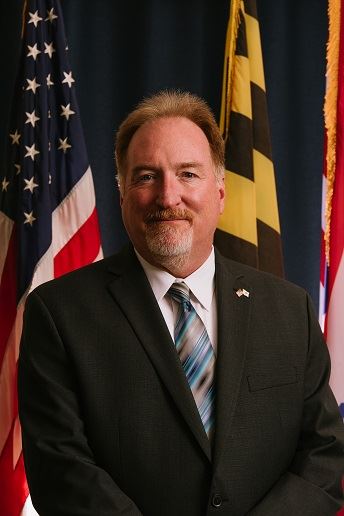The County Council asked for a fiscal note on all three bills.


Councilman Steve McKay Councilman Jerry Donald
Frederick, Md (KM) Three bills to modify the property tax credit programs for senior citizens, surviving spouses of disabled veterans, and elderly and uniformed service members were discussed on Tuesday by the Frederick County Council. Councilman Steve McKay, who is sponsoring these measures, says they would increase the tax credits, and make changes in the eligibility of participants in these programs.
One program is a local supplement to the state’s Homeowners’ Property Tax Credit. It caps the property tax rate for households meeting certain income requirements, and that includes a maximum eligible income of $60,000 annually. The County’s version of the program is the Senior Citizens Local Supplement to the Homeowners’ Property Tax credit. Households with gross income of between $30,001 to $80,000 would receive a 20-percent tax credit. Households with gross income of $30,000 or less would receive a 40-percent property tax credit.
McKay is proposing changes that would raise the gross maximum household income to $100,000, and provide property tax credits to households with gross incomes of greater than $50,000, but not more than $100,000. There would be a 50-percent tax credit for households with gross incomes of $50,000 or less. The home valuation limits would increase from $300,000 to $500,000.
The second program is the Elderly Individuals and Uniformed Service Members Property Tax Credit for those 65 and older who have been in their homes for at least 40 years and have a gross household income of $80,000 or less. It also covers retired uniformed service members 65 and older and their surviving spouses,. A third tier covered under this program are retired, active duty or discharged (other than dishonorably) uniformed service members of any age who have a service-connected disability and their surviving spouses. For the final two categories there is no income limitation. But in all three cases, the 20-percent tax credit would only be available for five years, and would only be calculated on the first $500,000 of assessed home value.
The changes proposed In McKay’s bill would raise the property tax credit to 30-percent, and increase the gross income limits from $80,000 to $100,000 for seniors 65 and older who have been in their homes for at least 40-years.
The third program is the Disabled Veterans Property Tax Credit which provides a two-tiered tax credit for veterans with a disability rating between 50-percent to 74-percent receiving a 25-percent tax credit, and veterans with a disability rating of 75-percent or greater receiving a 50-percent tax credit. There is gross household income limit of $100,000, but no limit on assessed home value, and there’s no number of years a veteran may apply for the credit. But the program is only available for five years for surviving spouses of deceased disabled veterans.
Councilman McKay is proposing to remove the five-year maximum for surviving spouses of deceased disabled veterans.
Over the years, McKay says the County has collected a lot of revenue, and it should return some of that to the taxpayers. “We’ve been collecting systematically a lot of excess revenue over the last five, six years,”: he says.
“We look at the cumulative budget surpluses over that period of time. It’s north of $250-million,”: he continues.
But Councilman Jerry Donald raised some concerns. “We need get a fiscal note on this bill. We need to know what we’re talking about because every time you don’t get a dollar in taxes, that’s a dollar you can’t spend on a library, on a park,” he said.
McKay said amenities like libraries and parks attract businesses which are considering locating to the county.
“it’s a legitimate discussion to decide how much we should tax and how much we should spend,”: he says “Ask yourself what are going to forgo.”
The Council agreed unanimously to ask for a fiscal note on these bills, particularly how much revenue the county will lose.
By Kevin McManus